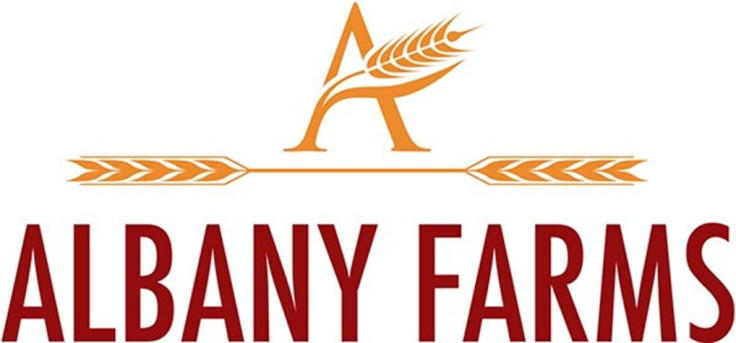Made in America, Built to Last: Albany Farms on Domestic Food Manufacturing
Food is one of the most essential building blocks of a nation. Besides survival, it defines the strength of a country's economy, the resilience of its communities, and the well-being of its people. It can be easy to overlook where meals come from in an era of global trade and instant access. However, recent years have reminded society of how fragile that system can be. The absence of local food manufacturing becomes a national risk in times of disruption.
Albany Farms, a ramen production company based in Belle Fourche, South Dakota, is rethinking what domestic food manufacturing can look like. It's committed to helping build economic durability, create jobs, and establish a more affordable and healthier food system for all.

The company recognized the need for more robust domestic food production during the COVID-19 pandemic. As global supply chains ground to a halt, Albany Farms has observed how grocery store shelves in the United States were emptied of staples like antibacterial products, toilet paper, and, surprisingly, ramen noodles.
This instance exposed that when a crisis hits, reliance on international supply chains puts even the most basic needs out of reach. "For a nation as vast and resource-rich as the US, this vulnerability is like a wake-up call," says William Saller, founder and CEO of Albany Farms. "It showed that food security is tied to self-sufficiency, so we made it our mission to rebuild our domestic production infrastructure."
Indeed, local production is crucial. After all, it can help reduce risk, build economic resilience, and foster healthier, more stable communities. "Food manufacturing done at home can also create jobs, especially in areas with scarce opportunities," Saller adds. "It can provide an entry point for those who are overlooked by the broader job market."
Albany Farms has firsthand experience with this. In its South Dakota operations, the company has employed individuals who were previously unemployed, facing financial difficulties, experiencing homelessness, or even just looking to enter a new industry. It gave them not just a paycheck but a second chance. Besides the jobs themselves, this approach nurtures dignity, independence, and generational uplift.
The benefits of domestic food production also include transparency and integrity. Consumers usually assume their meat was sourced from domestic farms, unaware that it may have traveled thousands of miles before landing on their plates. Such instances contribute to a disconnect between people and the origin of their food. By keeping production local, the distance from farm to fork can be shortened, accountability can increase, and trust can be restored.
There's also a strong environmental argument for local food production. When ingredients travel across oceans or continents, the carbon footprint expands dramatically. Imported goods can carry hidden environmental costs, from freight emissions to packaging waste. Albany Farms counters this by producing more than 85% of its food inputs within a close radius of its facility. The proximity to local wheat fields means reduced transportation emissions and fresher, more traceable ingredients. In other words, its noodles reflect a more responsible way to produce food.
"The US has the infrastructure and innovation needed to produce food domestically with high efficiency and consistent quality, but many companies still choose to import because doing so helps them with short-term cost savings. We're taking a longer view at Albany Farms," Saller remarks. Situated in the wheat belt and surrounded by fertile agricultural zones, the company is positioning itself to be fully vertically integrated. This means controlling every part of its supply chain, from the farm to the bowl.
Albany Farms shares its plans for its 100-acre campus in Belle Fourche. In addition to its core ramen manufacturing, Albany Farms is in the early stages of designing and developing a flour mill, a dedicated wheat storage facility, and a state-of-the-art freeze-dry facility. This will allow the company to support local growers by storing and using locally harvested wheat year-round, providing supply stability for their products and reliability for farming partners.
The freeze-dry facility is another forward-looking initiative. It aims to introduce real, high-protein meat and plant-based options into Albany Farms' noodle products. These showcase the company's commitment to improving the nutritional value of a food category traditionally seen as low-cost and low-nutrient. In fact, Albany Farm's new 10-gram Twisted Noodles Protein Cup Ramen is a perfect example of how low-cost does not have to mean low-nutrient.
By embedding itself into the agricultural fabric of its region, Albany Farms is creating a model for what community-focused, environmentally responsible, and economically inclusive manufacturing can look like. Its emphasis on domestic sourcing can help lower operational costs, strengthen local economies, reduce dependency on global supply chains, and offer consumers peace of mind about the quality and origin of their food. This model for domestic food manufacturing is pivotal for national resilience.
© Copyright IBTimes 2025. All rights reserved.





















